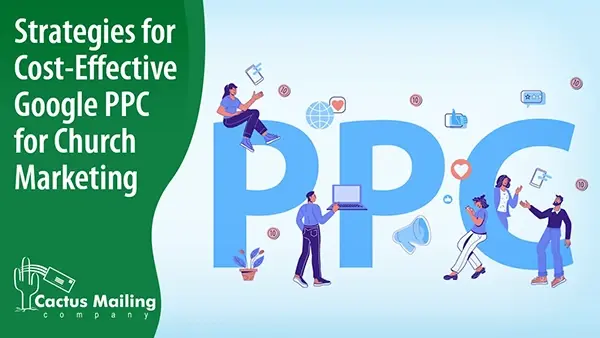We Are Here to Help!
What to Expect from Us:
No Pressure, Just Service!
Get no obligation pricing details and strategies that will work for your business.
Pay-per-click advertising can be valuable for accountants looking to grow their business and reach potential clients. Microsoft ads, Facebook ads, Bing ads, and Google PPC can all be grouped into one ad group that mainly uses a pay-per-click structure. Accounting firms can effectively promote their services to the right audience through this. This article will provide an overview of Google PPC for accountants, including the benefits, best practices, and key considerations to consider when setting up a PPC campaign. Let's dive into how Google Ads can help accounting firms reach their business goals.
Using Google Ads for Accounting Firms
Google Ads, formerly Google AdWords, is a powerful online advertising platform that works the same way as Microsoft Ads. It offers many benefits for accounting firms looking to reach potential clients and grow their business. With targeted advertising, measurable ROI, immediate results, and increased brand awareness, Google Ads can help accounting firms stand out in a competitive market and connect with the right audience. In addition, its customizable, cost-effective, and flexible nature allows accounting firms to tailor their ad campaigns to meet their specific needs and budgets, whether tracked via target return on ad spend (ROAS) or cost per acquisition (CPA).
Google PPC offers accountants a powerful tool to attract potential clients, increase visibility, and drive business growth. By employing the services of a Google ads manager, you can reap the benefits of using best practices and key considerations of the Google PPC platform to enhance their online presence and attract valuable leads for their accounting services.
Benefits of Google PPC for Accountant Marketing
- Increased visibility: Usually, a PPC ad appears at the top of search results, giving accountants prime real estate to attract potential clients.
- Targeted audience: With Google's advanced targeting options, accountants can reach specific demographics, locations, and search queries relevant to their services.
- Cost-effective: Accountants only pay when users click on their ads, making it a more efficient and trackable form of advertising.
- Measurable results: An effective Google Ads campaign will look through the data from Google Analytics to allow an accounting firm to optimize its campaigns to achieve better results.
Best Practices for Google PPC Campaigns
- Keyword research: To maximize ad spend, the marketing team should conduct thorough keyword research to identify the most relevant and the highest converting keywords for their services.
- Compelling ad copy: Writing attention-grabbing ad copy highlighting the accounting services' unique value proposition can significantly increase click-through rates.
- Landing page optimization: Directing users to a well-designed and informative landing page under an exceptional PPC campaign can improve the chances of converting clicks into leads or clients.
- A/B testing: Testing different ad variations, keywords, and targeting options can help accountants identify the most effective strategies for their PPC campaigns.

Key Considerations for Accountants
- Compliance: Accountants must ensure that their PPC campaigns adhere to industry regulations and guidelines, including any restrictions on advertising accounting services.
- Budget management: Setting a realistic budget and monitoring campaign spending is crucial for optimizing the ROI of Google PPC advertising. Consider target CPA as the primary tool for tracking conversion.
- Local targeting: For accountants serving specific geographic areas, utilizing location targeting in PPC campaigns can help reach local clients effectively.
- Professional support: Considering the complexity of PPC advertising, accountants may benefit from seeking professional assistance or training in managing an ad campaign effectively.
Setting Up Your Google Ads Account
Setting up your Google Ads account is a straightforward process that can help you reach potential clients and grow your accounting services. Here's a step-by-step guide to getting started:
- Begin by logging into your Google Ads account and navigating to the campaign settings tab.
- Once there, you will need to enter your website and phone number. This information is important because it allows potential clients to contact you and learn more about your services easily.
- Selecting the 'Create a campaign without a goal's guidance' option is crucial when prompted. It will give you complete control over your campaign and allow you to tailor it specifically to your accounting services.
- After selecting this option, carefully review and adjust the campaign settings to ensure they align with your goals. It may include setting your budget, determining your target audience, and choosing the best keywords for your services.
- If you have an office location, sign up for Google Business Profile, Apple Maps Connect, and Yelp. These tools let you manage your address, business hours, offerings, and reviews. To set up a Google Business Profile listing, type in https://google.com/business. Click the button that says "Manage Now" to enter all of your business information, including your meta description.
By following these steps, you can set up your Google Ads account to effectively promote your accounting services and attract new clients.
Target Audience: Google PPC Leads
Identifying and understanding the target audience is pivotal for accounting firms using Google Ads. Recognizing who potential clients are allows firms to tailor their services and marketing strategies to meet specific client needs and preferences. This article will discuss the significance of pinpointing a target audience, key characteristics to consider, and strategies for effectively reaching and engaging this group.
Importance of Identifying a Target Audience
Working with your Google ads manager to identify your target audience is crucial, especially if you use the Google Display Network. It enables firms to concentrate efforts and resources on individuals most likely to need their accounting services, enhancing marketing efficiency and effectiveness. This focus leads to higher conversion rates and client satisfaction but also aids in cultivating strong brand loyalty and lasting relationships with clients more likely to seek ongoing accounting services.

Characteristics to Consider When Defining a Target Audience
In defining a target audience, accounting firms should consider various characteristics to accurately identify potential clients. These include demographics like age, gender, income level, and geographic location, and psychographics such as personality traits, values, and professional interests. By understanding these facets, accounting firms can create comprehensive client profiles, improving their grasp of the specific needs and preferences of their target market.
Tips for Effectively Reaching and Engaging with the Target Audience
Once identified, it's vital for accounting firms to effectively reach and engage their target audience. Utilizing strategies like targeted Google Ads, content marketing tailored to financial topics, email campaigns, and local SEO can be highly effective. Regularly communicating the accounting firm's value proposition and expertise in accounting services through these channels is key. Engaging consistently with the target audience fosters brand awareness and loyalty, potentially increasing client acquisition and satisfaction. Furthermore, soliciting feedback from the audience can provide insights into refining services to better align with client needs.
Google Ad Strategies for Reaching Your Target Audience
Google Ads offers a variety of audience targeting options that can help accountants pinpoint and engage with the right potential clients. These options include remarketing, similar audiences, in-market audiences, and demographic targeting. Each of these strategies has benefits and can help accountants connect with potential clients who are most likely to engage with their services.
1. Remarketing
Remarketing allows accountants to show ads to people who have previously visited their website or used their app. It keeps accountants top of mind for potential clients who have already expressed interest in their services.
2. Similar Audiences
Google uses machine learning to find new potential clients with similar interests and behaviors to those of an accountant's existing customers. It helps accountants expand their reach to new potential clients who are likely to be interested in their services based on similarities with their current customers.
3. In-Market Audiences
Targets users researching and comparing services or products similar to what an accountant offers. Showing ads to audiences in the same market, just like how a local SEO campaign would execute it, allows accountants to reach potential clients actively looking for accounting services, increasing the chances of conversion.
4. Demographic Targeting
Allows accountants to target their ads to specific demographics, such as age, gender, income, and parental status, using tools like Google Maps. It enables accountants to tailor their messaging and offerings to specific demographic groups, increasing the relevance and effectiveness of their ads.
Keywords and Search Campaigns
Keywords and search campaigns are crucial in reaching and attracting prospective clients. By understanding the importance of search engine marketing using the right keywords and creating effective search campaigns, businesses can improve their online visibility and drive more traffic to their websites.
Researching Relevant Keywords for Your Accounting Business
One of the most effective ways to increase your visibility in Google search is by using relevant keywords your target audience is searching for. Incorporating a keyword into your Google Ad and landing page website content can improve your search engine ranking and attract more potential clients to your business.
Conduct thorough research and identify the typical search terms related to accounting and bookkeeping. Using keyword research tools, such as Google Keyword Planner, SEMrush, and Ahrefs, can be incredibly beneficial in this process, as they can help you identify the most popular and relevant keywords searched by your target audience.
In addition to traditional keywords, it's also important to focus on long-tail and voice keywords, as these can help increase your website's visibility and authority in search engines.
Based on your target audience and the services offered by your accounting business, some of the most relevant keywords to consider including on your website are:
- CPA services
- Small business accounting
- Virtual bookkeeping
- Tax preparation
- Financial advisory services
By incorporating these keywords into your Google PPC ad, you can improve your chances of being found by potential clients searching for your services.

Conversion Rates and Digital Marketing Strategy
Conversion rates are a critical metric in digital marketing, representing the percentage of website visitors who take a desired action, such as purchasing or signing up for a newsletter. A high conversion rate indicates a digital marketing strategy effectively drives engagement and revenue. In contrast, a low conversion rate may signal the need for strategy adjustments.
1. Understanding Conversion Rates
Conversion rates are a key campaign performance indicator in digital marketing, measuring a website's or campaign's effectiveness in turning prospective clients into solid leads. Understanding conversion rates requires a deep dive into Google Analytics tools to track and measure user behavior, analyze customer journeys, and identify friction points in the conversion process. Integrating location-based targeting using tools like Google Maps and leveraging social media can enhance these strategies. Some key metrics to consider include:
- Conversion Rate: The percentage of visitors who complete a desired action, such as making a purchase or filling out a contact form.
- Conversion Funnel: The stages that a user goes through before completing a conversion, including awareness, consideration, and decision.
- Bounce Rate: The percentage of visitors who navigate away from the site after viewing only one page, without taking action.
- Click-Through Rate (CTR): The percentage of users who click on a specific link, such as an ad or a call-to-action button.
2. Importance of Conversion Rates
A high conversion rate is a strong indicator of the effectiveness of a digital marketing strategy in driving engagement and revenue. It signifies that the website or campaign resonates with its target audience, compelling visitors to take action and move through the conversion funnel. On the other hand, a low conversion rate may indicate that the strategy could be more effective in capturing and retaining visitors' interest. By understanding and optimizing conversion rates, businesses can enhance their return on investment (ROI) and achieve their marketing objectives.
3. Strategies for Improving Conversion Rates
There are several strategies that digital marketers can employ to optimize conversion rates and improve overall campaign performance. These include:
- A/B Testing: Testing different versions of a webpage or campaign to determine which performs better in conversions.
- Clear Call-to-Actions: Using compelling and easy-to-find calls-to-action (CTAs) that guide users toward the desired action.
- Streamlined User Experience: Ensuring the website or landing page is easy to navigate, with clear messaging and intuitive design to minimize friction in the conversion process.
- Effective Landing Pages: Creating dedicated landing pages for specific campaigns or promotions, with a clear focus on the desired conversion goal.
4. Integrating Conversion Rate Optimization with Digital Marketing Strategy
Ultimately, the goal of optimizing conversion rates is to align with and support the overall digital marketing strategy. This requires a holistic approach that integrates conversion rate optimization (CRO) with other key components of digital marketing, such as:
- Content Marketing: Ensuring that content is relevant, engaging, and persuasive, to guide users towards a conversion.
- Paid Advertising: Aligning ad campaigns with optimized landing pages and CTAs to maximize conversion potential.
- Email Marketing: Leveraging email campaigns to nurture leads and guide them through the conversion funnel.
- Social Media Marketing: Using social platforms to drive traffic to optimized landing pages and engage with potential customers.
Improving Conversion Rates Through Digital Marketing Strategies
When it comes to improving conversion rates through digital marketing or strategies, including display ads, there are several key tactics to consider. Two highly effective methods are optimizing inquiry forms and utilizing LinkedIn marketing. By focusing on these areas, businesses can drive more qualified leads and ultimately increase their conversion rates.
Inquiry forms are often the first point of contact for potential customers, making it crucial to optimize them for maximum effectiveness. Meanwhile, LinkedIn provides a valuable platform for connecting with professionals and companies, building a reputation, and promoting content to targeted audiences.
Here are some successful changes to inquiry forms that have resulted in significant increases in conversion rates:
- Adding a clear call-to-action: Similar to Facebook ads, stating the benefits of filling out the form, such as receiving a free consultation or quote, can entice more visitors to provide their information willingly.
- Simplifying the form fields: Removing unnecessary fields and only asking for essential information can streamline the process and reduce friction for visitors.
- Implementing autocomplete options: Using autocomplete features for commonly entered information, such as city or state, can speed up form completion and improve user experience.
Now, let's delve into the benefits of utilizing LinkedIn for marketing efforts:
- Connecting with professionals and companies: LinkedIn provides a valuable platform for networking with industry peers and potential clients, which can lead to new business opportunities.
- Building reputation: Sharing valuable content and engaging with others on LinkedIn can help build trust and credibility within the industry.
- Promoting content to targeted audiences: With LinkedIn's robust targeting options, businesses can ensure their content reaches the most relevant audiences, increasing the likelihood of conversions.
- By leveraging these digital marketing strategies, businesses can improve their conversion rates and achieve greater success in their online marketing efforts.

Conclusion
Using Google PPC campaigns and search ads gives accounting firms a prime opportunity to establish a strong online presence, connect with potential clients, and ultimately gain a competitive edge in the digital marketplace. By harnessing the power of targeted keywords and compelling ad content, accounting firms can effectively reach their desired audience and drive quality traffic to their website. However, it's imperative for firms to continuously refine and optimize their PPC marketing strategies, ensuring that they adapt to changing market dynamics and deliver tangible returns on investment.
Additionally, pairing PPC efforts and paid search with a robust content marketing strategy can help further solidify a firm's online reputation and authority within the industry. As the digital landscape evolves, embracing a comprehensive approach to online advertising will be crucial for accounting firms looking to thrive in an increasingly competitive environment. With a strategic and data-driven mindset, Google PPC for accountant marketing is a powerful tool to bolster visibility, attract new clientele, and achieve sustained growth and success.
Our direct mail postcards have helped various businesses get leads, boost brand awareness, and grow revenue. Let us help you create a postcard design to achieve your marketing goals!

 Cactus Mail Team: Jun 03, 2024
Cactus Mail Team: Jun 03, 2024



